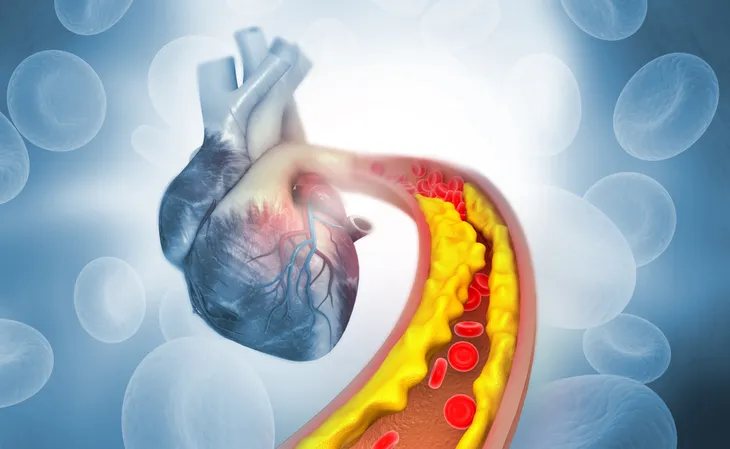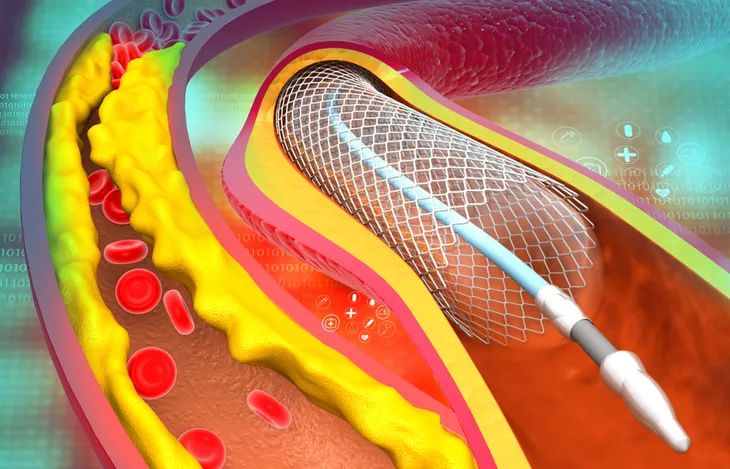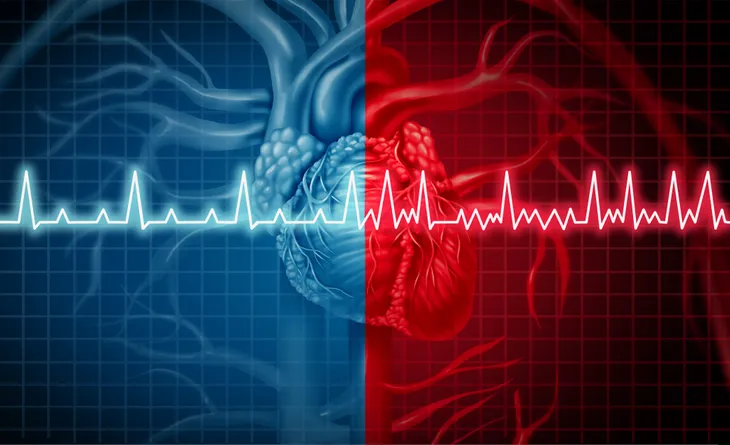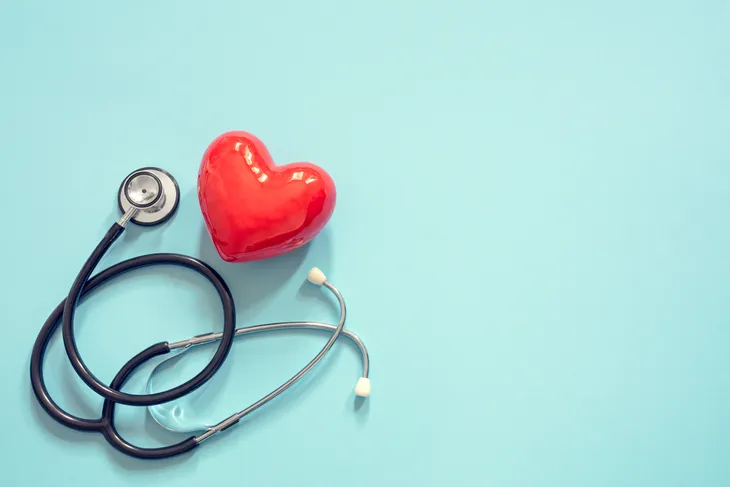Heart disease is the leading cause of death in the United States, and the numbers show little signs of slowing. Every year, roughly 805,000 Americans have a heart attack. Surprisingly, 1 in 5 of those heart attacks occur just below the sufferer’s awareness.
Not all heart attacks are created equal, but all heart attacks cause serious damage to the heart. Some call them silent heart attacks, some refer to them as mild heart attacks, and others choose to label them as mini heart attacks. Today, we’re going to present you with everything you should know about mini heart attacks so that you can spot one in the wild, and seek treatment accordingly.
What Is a Mini Heart Attack?
Doctors don’t go around calling them mini heart attacks. Instead, they use the term non-ST elevation myocardial infarction of NSTEMI.
An NSTEMI is basically a less severe form of a heart attack that inflicts less damage to the heart. That’s not to say that mini heart attacks should be taken lightly.
How Serious Are Mini Heart Attacks?
You can be forgiven for thinking that a mini heart attack isn’t that big of a deal. We blame the name for that. The truth is that all heart attacks should be treated with the utmost seriousness and care.
Experiencing a mini heart attack can still damage your heart as well as increase your risk of experiencing another. To answer the question above, mini heart attacks are incredibly serious and require immediate medical treatment every single time. If you suspect that you’ve experienced one, it’s critical that you seek care right away.
Symptoms of a Mini Heart Attack
If you’re familiar with the standard symptoms of a full-on heart attack then you may notice some repetition here. Symptoms of mini heart attacks are no doubt similar, though they often differ in their severity and intensity.
Symptoms of mini heart attacks include some combination of chest pain akin to pressure at the center of the chest, fatigue, shortness of breath, discomfort in the upper jaw, neck, and upper extremities, lightheadedness, nausea, spontaneously breaking out into a cold sweat, belching, heartburn, and vomiting.
Causes of a Mini Heart Attack
There’s a lot that goes into the mechanism involved in delivering a fresh supply of blood to your heart, which creates a lot of opportunities for things to go amiss. When it comes to heart attacks specifically, the failure can often be sourced to the arteries.
Your arteries are tasked with supplying blood to your heart. But, due to a range of factors including poor dietary choices, stress, smoking, and leading a sedentary lifestyle, fatty deposits form on the walls of these coronary arteries. These blockages inhibit your heart’s ability to function properly and serve as the primary cause of both heart attacks and mini heart attacks.
Diagnosis
There are a lot of tools and tests that medical professionals can learn in order to diagnose a potential mini heart attack. Blood tests that monitor a patient’s levels of CK-MB, troponin I, and troponin T can reveal signs of a potential mini heart attack. But blood tests alone are rarely enough.
Expect your doctor to also request an electrocardiogram, or ECG, heart tracing examination in addition to the blood test. By studying the waveforms on the ECG, your doctor can uncover a few specific characteristics of a potential mini heart attack.
Treatment
Treating mini heart attacks can vary. Individual characteristics, medical history, the seriousness of the condition, and the degree of the coronary artery all play a role in determining your next steps.
Your physician will likely compile a range of data about you, including your age, systolic blood pressure, heart rate, and more to determine your GRACE score — you will either be low, medium, or high risk.
Treatment begins once all of your data has been processed and may include one or a combination of medications, oxygen, and surgical procedures. But let’s take a look at the specific treatments for each GRACE score.
 novak.elcic / Shutterstock
novak.elcic / ShutterstockLow-Risk Treatment Options
If your doctor determines you’re rated low risk, they will likely prescribe medication, says WebMD. The goal of the medication is to help prevent your blood from clotting by thinning your blood.
Medication can also help lower your cholesterol levels, reduce swelling in your heart, and slow down your heart rate, says the source. It can also, “block chemicals in your body that tighten your blood vessels.”
Medium or High-Risk Treatment
If you’re given a medium or high-risk score your treatment plan may be more intense. For example, “your doctor may suggest surgery to open your blocked arteries or to bypass the blocked artery,” says WebMD.
In some cases a combination of treatments is necessary. It’s important to follow the guidance of your doctor.
Complications
Mini heart attacks can inhibit your heart’s ability to operate properly and effectively. Even the mildest of heart attacks can lead to complications like abnormal heart rhythms, heart failure, and sudden cardiac arrest.
Heart attacks of all severity also increase your chance of having another one. All the more reason to do everything that you can today to prevent your first from ever happening, or being diligent with your doctor-recommended treatment plan every single day.
Risk Factors
The risk factors of mini heart attacks should come as little to surprise to frequent ActiveBeat readers. The use of tobacco products, high blood pressure, diabetes, genetics, obesity, and high cholesterol can all increase an individual’s risk of experiencing one.
As can a medical history that includes angina, previous heart attacks, strokes, peripheral vascular disease, and transient ischemic attacks.
Prevention
If you have suffered a mini heart attack in the past or would like to be proactive about preventing one from occurring in your future, know that there are steps you can take today to lower your risk of developing heart disease and experiencing a mini heart attack yourself.
Lifestyle changes like incorporating regular exercise, maintaining a healthy weight, monitoring your cholesterol levels, quitting smoking, managing stress, and shifting to a heart-healthy diet can have a dramatic impact on your risk of heart attack as well as improve your quality of life.
The Takeaway
Mini heart attacks are notoriously tricky to spot. It’s not like mini heart attacks are symptom-free, it’s just that most everyday Americans remain blissfully unaware of their existence. Shortness of breath, nausea, belching, heartburn and sweating are symptoms that can quite easily be brushed off or endured. But delaying treatment or worse, not seeking treatment at all, will make things worse.
The answer to America’s mini heart attack epidemic is education. Understanding the seriousness of the condition and knowing how to spot the signs is the only way to keep mini heart attacks from devastating more lives. So keep reading, keep asking questions, and keep going to your doctor on the regular.














